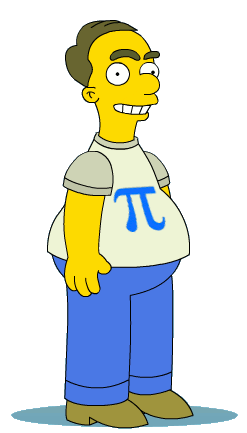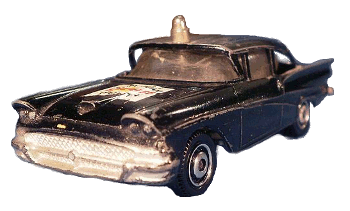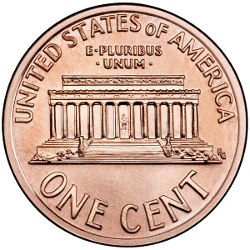Zinc and The Simpsons
February 17, 2012

This Sunday, February 19, 2012, marks the 500th episode of the popular animated television series,
The Simpsons.[1] This irreverent show has always been popular with scientists, engineers, technologists and mathematicians, and for good reason.
My Simpsons avatar.
Many of the writers for the show have science and math credentials, and jokes concerning science and math make frequent appearances.[2] There is nowhere else on television that you will find Fermat's Last Theorem cast as a joke.[3]
Not that you need to know advanced number theory to enjoy math humor. Math jokes directed to a public with an elementary mathematics education appeared in movies, as can be seen in this video clip from a 1951 Ma and Pa Kettle film.[4] In this case, an audience with a rudimentary knowledge of arithmetic was expected to find the scene to be funny.
Most of my readers will remember a link between the word, "Simpson," and mathematics from an undergraduate calculus or
analytical geometry course.
Simpson's rule, as published by
Thomas Simpson, an
eighteenth century inventor and mathematician, approximates the
area under a curve by calculating the midpoint value between a starting and ending point and applying a
trapezoidal area calculation of areas; viz.,

One recurrent theme in The Simpsons is the presentation of boring
tutorial films to
elementary school children. For those of you who think that
advertising targeted to schoolchildren is a recent phenomenon, students of my generation sat through many
sports tutorials containing an embedded ad for
Wheaties cereal. One film presented to
Bart Simpson's class was "A World Without Zinc," that depicted what life would be like without the metal,
zinc.
The film's
teen protagonist cries, "Come back, zinc, come back!" when he realizes how much of
modern life depends on this
metal. Actually,
biological life as we know it would be impossible without zinc, as stated on
The Periodic Table of Videos.[5] A
cellphone camera capture of "A World Without Zinc" is available via
YouTube,
here.
Zinc was an important metal of my own childhood. I enjoyed the
Metal Men comic books, the characters of which were
robots with qualities that matched their
element; e.g.,
iron was a
strongman, and
platinum was a
platinum blond woman. Zinc appeared in
Metal Men, vol. 31, May, 1968, pp. 2,6. Perhaps these comics were my inspiration to pursue
metallurgy/
materials science.
Also a part of my childhood, in the days before ubiquitous
injection-molded plastic toys, were
toys made from die cast zinc. Zinc is an excellent material for
die casting. It's a relatively benign metal with a low
melting point (419.5 °C). Not-so-benign
mercury,
gallium,
lead,
bismuth and
cadmium, among
others, have lower melting points. Zinc is used less frequently than only three other metals, iron,
aluminum and
copper. It's also inexpensive, being currently about one
US dollar per
pound.[6]

Hubley Realtoys 1958 Ford police vehicle, made from painted, die-cast zinc.
(Photo by C. Steven Campbell, via Wikimedia Commons))
One of the most important uses of zinc is for
galvanization, a method to forestall the
corrosion of
steel. A zinc coating, applied by
electroplating, but more usually by
dipping the article into molten zinc, is used as a
sacrificial anode in corrosion
reactions. The presence of the sacrificial anode disrupts one of the two
half-reactions responsible for the formation of
iron rust; i.e.,
Fe -> Fe2+ + 2e-
The downside is that the sacrificial anode is corroded, instead, but there's a net advantage to the lifetime of the steel structure.
Many years ago, my family discovered zinc
throat lozenges as a
common cold remedy. This
patented [7] delivery mechanism for the active ingredient,
zinc gluconate, has been shown in one
clinical study to markedly reduce cold symptoms. Coughing and cold duration were essentially cut in half.[8] One tip, as advised by the manufacturer, is not to use these on an empty
stomach, or you might be moaning, "Why, zinc, why!"

EX ZINCO, MULTO
US Lincoln pennies dated 1983 or later are copper-plated zinc (97.5% Zn, 2.5% Cu).
Earlier coins, except 1943, which were zinc-plated steel, are 95% copper.
(Via Wikimedia Commons)
![]()
References:
- The Simpsons on the Internet Movie Database.
- Sarah J. Greenwald and Andrew Nestler, SimpsonsMath.com Web Site.
- Fermat's Last Theorem in Fiction on Wikipedia. The Simpsons episode, "Treehouse of Horror VI," presents the equation 178212 + 184112 = 192212, which is valid to twelve digits, but false by Fermat's Last Theorem (since proven). The Simpsons episode, "The Wizard of Evergreen Terrace," presents the equation, 398712 + 436512 = 447212, valid to ten digits, but also false.
- Ma and Pa Kettle Back on the Farm (1951), Wikipedia Page; Ma and Pa Kettle Back on the Farm, 1951, Edward Sedgwick, Director, on the Internet Movie Database.
- Zinc (version 1) - Periodic Table of Videos, via YouTube; Zinc - Periodic Table of Videos, via YouTube.
- Mineral Commodity Summary - Zinc, US Geological Survey, 2012.
- John C. Godfrey, "Flavor of zinc supplements for oral use," US Patent No. 4,684,528, August 4, 1987.
- Jonathan Chait, "Come Back, Zinc! Come Back!" The New Republic, February 16, 2011 .
Permanent Link to this article
Linked Keywords: Simpsons Avatar; The Simpsons; scientist; engineer; technologist; mathematician; science and math credentials; science; math; television; Fermat's Last Theorem; number theory; math joke; film; movie; Ma and Pa Kettle; arithmetic; undergraduate; calculus; analytical geometry; Simpson's rule; Thomas Simpson; eighteenth century; inventor; integral; area under a curve; trapezoidal area calculation; tutorial; elementary school; child; advertising; sports; Wheaties cereal; Bart Simpson; zinc; adolescence; teen; Modern Times; modern life; metal; biological life; The Periodic Table of Videos; cellphone; camera; YouTube; Metal Men; comic book; robot; element; iron; strongman; platinum; platinum blond; Metal Men, vol. 31, May, 1968, pp. 2,6; metallurgy; materials science; injection-molded; plastic; toys; die cast zinc; die casting; melting point; mercury; gallium; lead; bismuth; cadmium; sodium; aluminum; copper; US dollar; pound; Hubley Manufacturing Company; Hubley Realtoys; Ford Motor Company; Ford; C. Steven Campbell; Wikimedia Commons; galvanization; corrosion; steel; electroplating; hot-dip galvanizing; sacrificial anode; chemical reaction; half-reaction; iron rust; throat lozenge; common cold; patent; zinc gluconate; clinical study; stomach; Lincoln cent; US Lincoln penney; ; Internet Movie Database; US Patent No. 4,684,528.